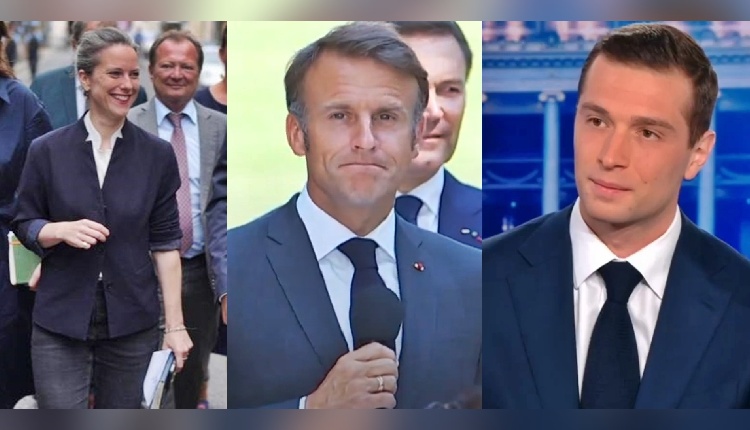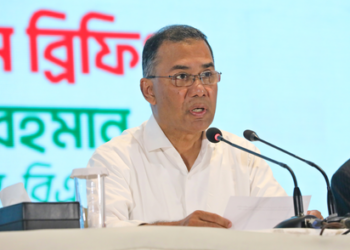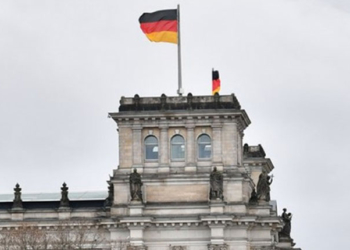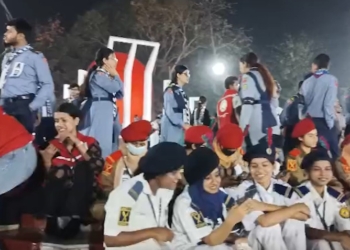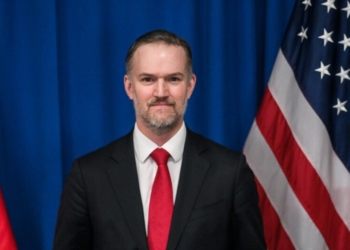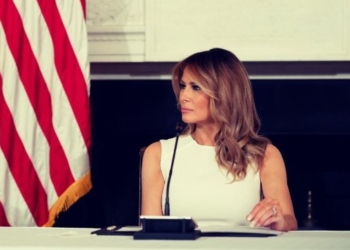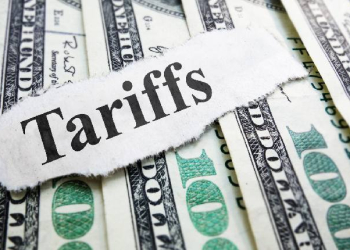New Delhi: With the Paris Olympics with their tales of talent, endeavour, and heartbreak long over, France’s attention is back to an entirely new game – ensuring a new government after the fractured mandate thrown up by the July elections to the National Assembly, but any breakthrough seems unlikely.
President Emmanuel Macron, whose gambit to call snap elections after his party’s humiliation in the European Parliament elections ended up in a polarised situation with three irreconcilable blocs emerging in the Assembly, had set the process in motion last week as he began consultations with all three formations.
He had, on Friday, met a delegation of left coalition New Popular Front (NFP, as per its French name), which holds the most seats (182) in the 577-member house and pitched 37-year-old civil servant Lucie Castets for the Prime Minister’s position, and then, his own centrist Ensemble alliance, which has 168 members. Finally, on Monday, he met Marine Le Pen and PM hopeful Jordan Bardella of the far-right National Rally, which ended up third, with 143, despite its stellar first-round performance.
However, Macron, whose aim, as per aides, was a regime with a large and stable majority that wouldn’t fall with the first censure motion, eventually dashed the NFP hopes by refusing to agree to a government led by it, contending that it could not win a confidence vote in parliament. The Ensemble and the National Rally have already said that they would vote against any NFP government.
“My responsibility is that the country is not blocked nor weakened,” he said in a statement on Monday.
“The Socialist Party, the Greens and the Communists have not yet proposed ways to cooperate with other political forces. It is now up to them to do so,” he added, leaving out key constituent, the hard-left France Unbowed movement (LFI).
The President said he would start new consultations with party leaders on Tuesday.
His statement drew an angry response from the NFP, which called for street protests and Macron’s impeachment.
LFI national coordinator Manuel Bompard termed the President’s decision as an “unacceptable anti-democratic coup”, while
Communist leader Fabien Roussel accused Macron of triggering a “serious crisis in our country”, and Green leader Marine Tondelier, in a post on X, contended that three-quarters of the French people wanted a “political break with Macronism”.
However, it is hard to see how any of the three politically disparate forces, which account for almost 500 members, can cooperate, given that there is no other formation with enough strength to take either of them beyond the simple majority mark.
Any alliance between any of the three major blocs seems inconceivable due to their radically divergent ideologies and policies.
After the first round where the National Rally surged, the NPF and the Ensemble entered into a marriage of convenience to deny it the projected majority, as they tactically withdrew the weaker candidates to set up a one-to-one contest.
However, this tacit understanding soon collapsed as Macron’s party enabled the re-election of National Assembly President Yael Braun-Pivet over NFP challenger, communist Andre Chassaigne, with the help of the Republicans, or rather, a faction of the rightwing party not allied to the National Rally.
The further slight to the NFP is adding fuel to the flame, but even if both blocs manage to put all this bad blood behind by some miracle or forbearance, it is unlikely to see how far they can cohabit. NFP’s Castets has already spoken of rolling back Macron’s decision to raise the pension age to 64, and of a major rise in public spending.
National Rally and Ensemble? Another unlikely combination given how much the Le Pen’s party resents the Ensemble-Left coordination that denied the majority they were projected to bag.
The National Rally and the New Popular Front? Opposites may attract but a combination of the far-right and a wide section of left is a pipedream, despite their common opposition to Macron.
There may be a legislative marriage of convenience if one of the existing bloc fractures but this is also a remote possibility.
There are faultlines, though. The NFP does comprise four parties straddling the left spectrum, and there is another section of unaffiliated left with a dozen-odd Deputies. Then, there is a new prospective contender. Socialist Karim Bouamrane, who has been the Mayor of Saint-Ouen since 2020, came to public notice due to the Olympics as the Parisian suburb hosted several events. After international media attention, the influential Le Figaro Magazine recently profiled him as “the face of the other left,” and quoted him pleading for a “coalition” and criticising the LFI.
Does this portend realignments? Only time will tell.
Meanwhile, the approaching deadline for preparing the budget necessitates expediting the government’s formation. Will Macron manage?
(IANS)




